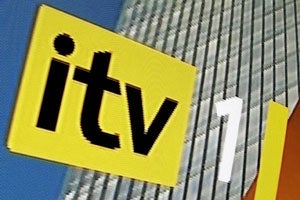ITV sells Friends Reunited after £105m loss

Your support helps us to tell the story
From reproductive rights to climate change to Big Tech, The Independent is on the ground when the story is developing. Whether it's investigating the financials of Elon Musk's pro-Trump PAC or producing our latest documentary, 'The A Word', which shines a light on the American women fighting for reproductive rights, we know how important it is to parse out the facts from the messaging.
At such a critical moment in US history, we need reporters on the ground. Your donation allows us to keep sending journalists to speak to both sides of the story.
The Independent is trusted by Americans across the entire political spectrum. And unlike many other quality news outlets, we choose not to lock Americans out of our reporting and analysis with paywalls. We believe quality journalism should be available to everyone, paid for by those who can afford it.
Your support makes all the difference.ITV today announced the sale of its Friends Reunited business as it reported a £105 million half-year loss.
The broadcaster said it had agreed to sell the social networking site to DC Thomson, publisher of the Beano and the Dundee Courier, for £25 million.
ITV, which bought Friends Reunited for £120 million in 2005, said the deal was subject to approval by the competition authorities.
DC Thomson said the acquisition of Friends Reunited would create Britain's leading genealogy business by bringing together the Genes Reunited site and findmypast.com. These sites operate the official 1901 and 1911 Census websites respectively in association with The National Archives.
Friends Reunited, which has 20.6 million members, was launched in 2000. Genes Reunited was launched in 2003 and has 9 million members worldwide and over 500 million names listed.
Friends Reunited has suffered in recent years as rival social networking sites like Facebook, Bebo and MySpace emerged on the scene.
ITV today revealed that television advertising across the market suffered its worst year-on-year decline on record during the six months to June 30.
The firm said its net television advertising revenue (NAR) fell by 15 per cent, or £108 million, but said this was better than the overall market decline of 17 per cent.
It also said there were signs that the advertising slump was moderating in the second half, with revenues predicted to be down 12 per cent in the third quarter and 7 per cent by the end of the year.
John Cresswell, ITV chief operating officer, said it was important to see the firm through the "pretty severe ad recession" without damaging its long-term value.
He told BBC Radio 4's Today programme: "We are a cyclical business and we are amid the depths of a pretty deep cycle but what we have to do in that is adjust our spending and our investment to make sure that the business can be strong going forward.
"We've got three principle businesses - obviously the broadcasting, our viewing shares held flat in a fragmenting world for the third year running which we're very pleased about.
"We're taking advertising share from our competitors. Our content business ... is showing good growth in revenue, certainly in the first half, and online video is growing very quickly as well."
ITV made a statutory £1.54 billion loss last year after it was forced to write off £1.6 billion of goodwill associated with acquisitions made in 2000 and 2004 because of reduced advertising forecasts.
Executive chairman Michael Grade said: "Our financial results for the half year reflect the impact of the unprecedented downturn in television advertising, offset by the comprehensive action we are taking in mitigation.
"The rate of market decline has eased slightly in the second half and ITV continues to outperform the market."
He said the fact that ITV had attracted more advertising than the market as a whole was a testament to its programming.
Mr Grade added that the broadcaster had managed to retain its audience share for the first time in 25 years.
ITV said its top-performing shows included the drama Whitechapel and Harry Hill's TV Burp.
Britain's Got Talent was the highest-rating non-sports programme on UK television in six years and enjoyed peak audience numbers of nearly 20 million.
I'm A Celebrity, with spin-offs in the US and a German version entitled Ich Bin Ein Star, has generated more than £150 million in cumulative lifetime revenues.
ITV said it had reduced costs by £57 million in the first half of the year and was on track to deliver at least £155 million in savings this year and £215 million in 2010.
The firm said it had announced the majority of the job cuts planned and, after a consultation, all those affected - over 1,000 - were aware of their position.
"We have no current plans for more, although you can never rule it out," the firm said.
Join our commenting forum
Join thought-provoking conversations, follow other Independent readers and see their replies
Comments